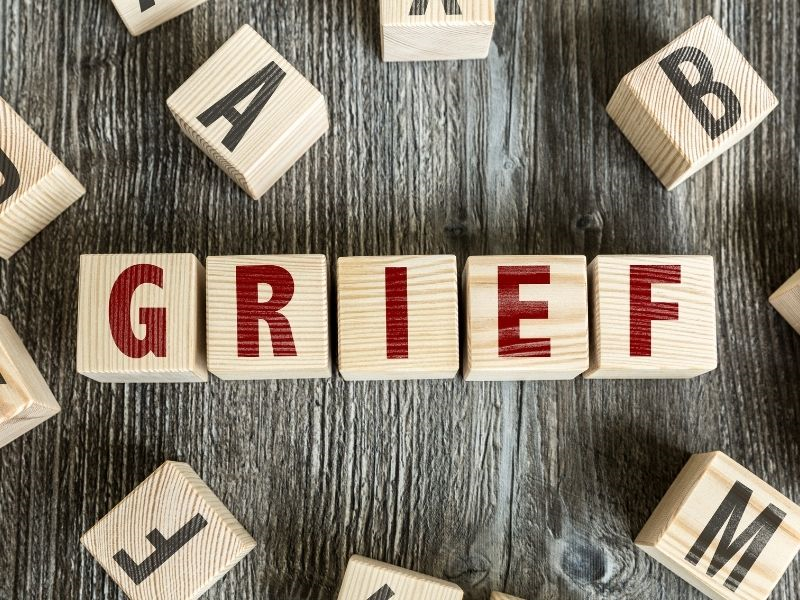Ann Hoff joins Pet Perennials to host a monthly Zoom meeting. See our FB Group Page for details.
When some people are going through a death in the family, everyone is experiencing it. Yet it can feel isolating, and you feel such a distance away from others. They cannot bring you comfort when you feel inconsolable. Yet are we really inconsolable? Or do we see it in such a way that we lock ourselves uptight and don’t feel or share our grief?
Should you shield the canyons from the windstorms, you will never see the beauty of their true carvings?
~Elizabeth Kübler-Ross
If you do not FEEL your grief, if you gloss it over like a putting a fresh coat of paint on a rusty fender, it is still there. Then when you have another incident that causes you grief, it connects with the first one. Because grief that is not felt is like a land mine in the soil that will go off when you touch it again. You have done nothing to lessen its power over you. On top of that, you must numb a part of yourself to not feel that grief. As life goes on, you are numbing more and more of yourself. You have seen these people. Something bad happened to them, and they never were the same again. That is because they did not live their grief and move through the storm. By not releasing grief, you are holding on to the past, and that gives you less energy and emotion to create the beautiful life you deserve today.
I remember the first Elizabeth Kübler-Ross Death and Dying workshop I participated in. Many people there had the fear that if they started crying, they would cry forever, it would never end. That it would be their undoing. They were afraid there wasn’t a bottom to their grief. Instead of it being a storm that they were hunkering down through, they saw it as an endless well of pain that would swallow them whole.
The trainers in that workshop were there to facilitate your journey into that storm- for you to find out it is a storm, not a watery death that you never recover from. Having gone through deep grief before, they knew that you would survive. You can make it through to the other side. Just having them there, well, it changed things. It felt like I had thought the earth was flat, and my grief would sail me off the end of the earth, never to return. The counselors had made that journey before, and they assured us it did not last forever.
My therapist recommended I do the workshop, because he said talking your truth in front of a group would be equivalent to doing five years of one-on-one therapy. I don’t know if that is true, but I knew he wanted me to go to the workshop THAT BADLY. It changed my life in many perceptible and imperceptible ways. There is a power in sharing your grief with others. Of saying you are broken by grief, but not destroyed.
That first workshop, I cried so hard at so many sad stories that I got TMJ spasms in my jaw. (It didn’t help that I was taught by my parents to never cry. I had twenty years of tears inside of me). It was unbelievable how many horrible things, or just ordinary things that were incredibly hard that people in the workshop had gone through. Our mutual grief connected us in profound ways.
Throughout the weekend, everyone went up one at a time, sharing their story. People that thought they were the only ones that were having an issue. The counsellors would ask if anyone else ever felt that way, and at least half of the room always raised their hands. It made me realize that to be human is to feel that you are alone until you share those feelings and find your community. Even people who had supposedly nothing in common would have similar experiences. More than one person stood up and said they felt singularly broken, like they were unfixable, that there was something wrong with them. Yet again and again the group would share their feelings on grief and shame, creating the realization that we are all bound together by our humanity.
The whole experience affected me on a level deeper than I knew when I was going through it. Even now, years later I am integrating the reason we need to grieve and share with others. There are things we can know on an intellectual level, but do not feel until we experience them. It is through feelings and experiences that we learn, not concepts.
The more we truly feel our feelings, our grief, the more it will dissipate. The more we will heal. The more we share our grief, the more we find out that we are not alone in our grief. There is a bottom to the emotion, do not be afraid to enter into it. When you move through your grief, it brings you anew, to a new present moment. You will never forget the being you lost, that is impossible. Them and their loss has become part of who you are.
The most beautiful people we have known are those that have known defeat, known suffering, known struggle, know loss, and found their way out of those depths.
Elizabeth Kübler-Ross
One of the main things I learned from Kübler-Ross is that we can have company on that journey into grief. That sharing our sorrow helps. In the depth of grief, it matters if someone is holding your hand, hearing your truth. That we are ALL human. No one escapes it, but somehow being together makes the healing faster.





